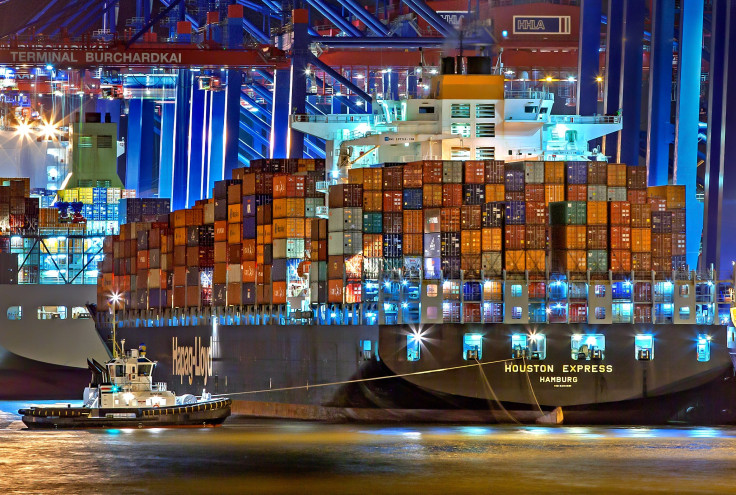Shipment Visibility a Critical Component of Today's Freight Industry, Says Jaguar Freight CEO Simon Kaye
The freight and logistics industry has had a rough time in the past couple of years, with a global supply chain crisis caused by the COVID-19 pandemic and the Russian invasion of Ukraine. Delays in shipment and port congestion on both US coasts worsened, which caused a major upset in the just-in-time manufacturing model adopted by many producers worldwide.

According to Simon Kaye, CEO of New York-based Freight Architect™ and NVOCC Jaguar Freight, there has been huge demand in the logistics industry for shipment visibility to address the supply chain crisis. Importers and shippers wanted and needed to know where their cargo was at any one point, as having shipments arrive at the expected time is extremely critical, with severe knock-on effects on business operations.
"I'm a strong believer that, in order to fix things downstream (such as congestion, shipping delays, etc.), you have to fix things upstream. The sooner our client has information about the status of an order, the more time they have to adjust and do whatever they need with regard to production or distribution. This gives them more opportunities to mitigate the issue," Kaye says.
Jaguar Freight has a system known as Purchase Order Event Management (POEM), which has been in place for more than 10 years. However, according to Kaye, this system really proved its value during the pandemic, as it informed clients about not just shipping delays, but also production delays.
POEM takes a feed from their clients of new and open purchase orders, and connects with their suppliers overseas to ensure that they understand the status of those purchase orders, and if they are going to meet the cargo ready date at origin. Typically, when a customer places a purchase order, they often find out that the shipment is delayed only at the last minute. On the other hand, the POEM system monitors the suppliers and the status of those purchase orders. This allows the customer to know about a delay as soon as possible, giving them more time to take action. POEM also automates the entire process and uses a traffic light system allowing Jaguar Freight's customers to manage shipments by exception.
"This gave our clients a huge advantage during COVID, because they knew exactly what was going on during the pre-transportation phase, as well as during transportation. And now, in a post-COVID world, it allows them to be much more strategic in their business, they're able to understand their supply chain better and work smarter. As one of our customers said, it prevents them from committing self-harming actions. POEM allows them to protect themselves from expediting things that they don't need to expedite and consolidate things that can be consolidated."
Furthermore, POEM is carrier-agnostic, making it a major differentiator for clients. It can handle all shipments that Jaguar Freight's clients undertake, even those that they've booked with other companies. Kaye says this is one of Jaguar's 31 business fundamentals, which is; do what's best for the client.
"The logistics industry is quite archaic, and it needs to be dragged kicking and screaming into the 21st century. It's very disjointed, where regular enterprise resource planning (ERP) systems don't deal well with PO management, so shippers issue purchase orders, but nothing is really visible until goods arrive at a warehouse from a factory, so there's a little bit of a black hole in a lot of ERPs. It takes time to solve this, and it's not easy to implement because of the fragmentation within the industry."
Jaguar Freight's ability to deal with the supply chain crisis stems from its strong focus on technology, which allows it to foresee potential problems and quickly react when they arise. Shortly after establishing Jaguar Freight in 1993, Kaye realized that the company wasn't in the shipping and transportation business. Instead, it was in the information business. This meant that technology and information were critical from day one, and Jaguar is able to use technology to fill in the gaps left by logistics companies that are not as tech-focused.
Looking forward, Jaguar Freight is continuously mapping out improvements to its business. It plans to revamp its front-end and back-end systems, including the database, the user interface, and the user experience. Kaye says that it is a multi-year process, and it demonstrates Jaguar Freight's commitment to evolve with the times and adapt to a dramatically changing global logistics landscape.





















